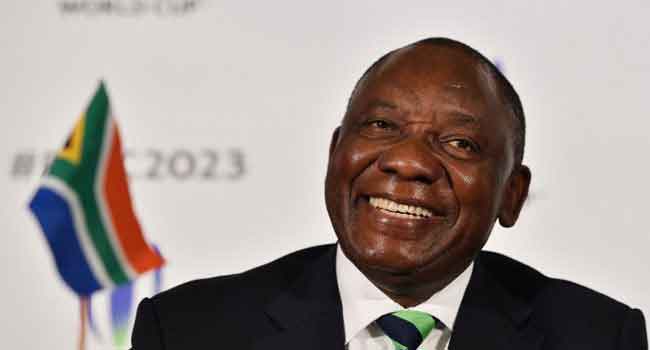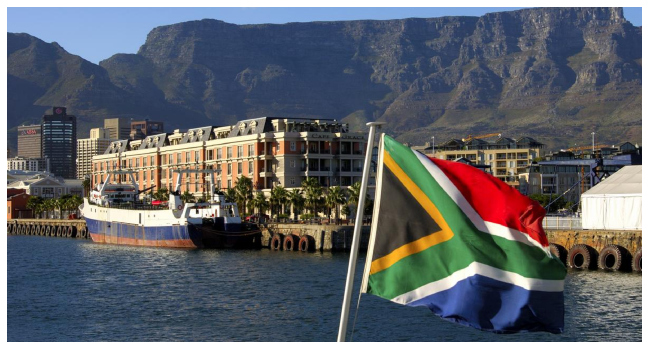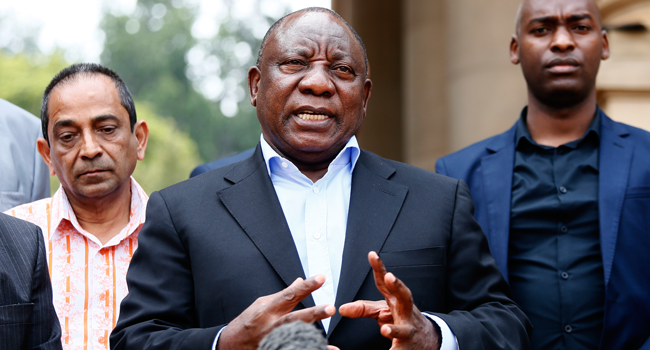
South Africa on Tuesday cautiously welcomed President Cyril Ramaphosa’s sweeping cabinet reshuffle which put reformers into key economic posts but retained several scandal-tainted ministers to promote unity.
After just 11 days as president, Ramaphosa stamped his authority on his government by clearing out several ministers seen as loyal to his predecessor Jacob Zuma.
The most significant appointments were those of Nhlanla Nene who becomes finance minister and Pravin Gordhan who will oversee the country’s vast but troubled state-owned enterprises.
Nene’s promotion is particularly symbolic as Zuma sacked him in December 2015, replacing the respected minister with an unknown novice causing the local rand currency to tank as markets went into free-fall.
Four days later, Gordhan was appointed to the role to calm the markets.
Nene’s return to the finance ministry was a clear repudiation of Zuma’s reign, and was warmly welcomed by local business and international investors.
The rand gained as much as 0.8 percent against the dollar on reports Nene was to be appointed.
It continued to strengthen on Tuesday, trading at 11.64 rand to the greenback by 1000 GMT.
Ramaphosa’s controversial pick for deputy president David Mabuza, the current premier of Mpumalanga province who has faced allegations of ties to political violence but has never been convicted, caused concerns among some observers.
– ‘Cabinet is clearly a compromise’ –
“The whole cabinet is clearly a compromise because he had to keep some of the people in the ANC happy. This was probably the best he could do,” said political analyst Mari Harris.
Ramaphosa described it as “a transitional cabinet” on Tuesday.
“We’ve got some really good people,” he said.
Ramaphosa made a total of 30 changes to ministerial and deputy ministerial positions after graft-tainted Zuma was forced to resign by the ruling ANC party earlier this month.
Several Zuma allies were demoted or sacked — but Zuma’s ex-wife Nkosazana Dlamini-Zuma was appointed minister to the presidency, responsible for planning, monitoring and evaluation.
Ramaphosa narrowly beat Dlamini-Zuma in a fierce contest to be elected the new leader of the ANC in December.
Dlamini-Zuma was seen as Zuma’s favoured candidate to succeed him as president.
Mining, which is vital to South Africa’s economy, received a new minister — Gwede Mantashe — who was eagerly welcomed by the industry.
“(He is) a man of integrity and dignity… who brings with him a sound and fundamental knowledge of the industry,” said the country’s Chamber of Mines in a statement.
Following the reshuffle, Ramaphosa vowed to begin talks on a new mining charter to replace the document that was largely seen as having been forced through by Mantashe’s predecessor, Mosebenzi Zwane.
Zwane was seen as close to the Guptas, an Indian business family that had enjoyed warm ties with Zuma but is now the subject of a police corruption investigation.
During Zuma’s nine-year tenure, South Africa grappled with corruption, weak growth, ballooning national debt, depressed investor confidence and record unemployment.
– ‘Ticking time-bomb’ –
Amid falling popularity with voters, the African National Congress (ANC) party which took power in 1994 under Nelson Mandela, had threatened to oust Zuma with a parliamentary no-confidence vote.
Zuma ultimately resigned, claiming he had received “very unfair” treatment.
Ramaphosa must now galvanise the ANC ahead of key national elections due in 2019.
“He needs to keep the public happy and he needs to keep the party together, so it is a very difficult balancing act,” said Harris, the analyst.
Mabuza’s appointment as deputy president has caused concern due to his reputation as a hardliner.
“That is a big gamble,” said Peter Fabricius, an analyst at the Pretoria-based Institute of Security Studies.
“I hope he is not going to prove to be another Zuma. I hope he is not a sort of ‘ticking time-bomb’ in cabinet.”
The radical opposition Economic Freedom Fighters party rejected the new cabinet line-up.
“(Ramaphosa) has bowed to factional pressure in the ANC,” said party spokesman Mbuyiseni Ndlozi who accused the president of keeping corrupt ministers in government.
Ramaphosa, 65, is a former trade unionist who led talks to end apartheid in the early 1990s and then became a multi-millionaire businessman before returning to politics.
AFP




